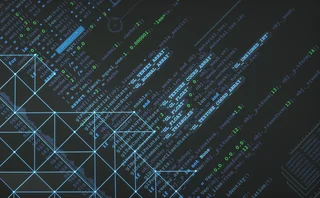Conde: 'Users Need Bigger Software'
FRONT PAGE: VENDOR UPDATE
LAS VEGAS—At its annual user conference in Las Vegas late last month, SunGard president and CEO Cristóbal Conde gave a little glimpse into what the next chapter for SunGard will be like—at least the parts of the empire that serve the financial services realm.
The SunGard that will emerge from the split with Availability Services is likely to mirror what securities firm customers are doing, Conde says (DWT, Oct. 11). "It's in reaction to our customers who are breaking down silos within their
Only users who have a paid subscription or are part of a corporate subscription are able to print or copy content.
To access these options, along with all other subscription benefits, please contact info@waterstechnology.com or view our subscription options here: https://subscriptions.waterstechnology.com/subscribe
You are currently unable to print this content. Please contact info@waterstechnology.com to find out more.
You are currently unable to copy this content. Please contact info@waterstechnology.com to find out more.
Copyright Infopro Digital Limited. All rights reserved.
As outlined in our terms and conditions, https://www.infopro-digital.com/terms-and-conditions/subscriptions/ (point 2.4), printing is limited to a single copy.
If you would like to purchase additional rights please email info@waterstechnology.com
Copyright Infopro Digital Limited. All rights reserved.
You may share this content using our article tools. As outlined in our terms and conditions, https://www.infopro-digital.com/terms-and-conditions/subscriptions/ (clause 2.4), an Authorised User may only make one copy of the materials for their own personal use. You must also comply with the restrictions in clause 2.5.
If you would like to purchase additional rights please email info@waterstechnology.com
More on Trading Tech
Will overnight trading in equity markets expand next year? It’s complicated.
The potential for expanded overnight trading in US equity markets sparked debate this year, whether people liked it or not.
WatersTechnology latest edition
Check out our latest edition, plus more than 13 years of our best content.
The total portfolio approach gains momentum: Building the right tech foundation for success
The rationale for the TPA, and the crucial role technology plays in enabling such an approach
Google, CME say they’ve proved cloud can support HFT—now what?
After demonstrating in September that ultra-low-latency trading can be facilitated in the cloud, the exchange and tech giant are hoping to see barriers to entry come down.
Institutional priorities in multi-asset investing
Private markets, broader exposures and the race for integration
BlackRock and AccessFintech partner, LSEG collabs with OpenAI, Apex launches Pisces service, and more
The Waters Cooler: CJC launches MDC service, Centreon secures Sixth Street investment, UK bond CT update, and more in this week’s news roundup.
TCB Data-Broadhead pairing highlights challenges of market data management
Waters Wrap: The vendors are hoping that blending TCB’s reporting infrastructure with Broadhead’s DLT-backed digital contract and auditing engine will be the cure for data rights management.
Robeco tests credit tool built in Bloomberg’s Python platform
This follows the asset manager’s participation in Bloomberg’s Code Crunch hackathon in Singapore, alongside other firms including LGT Investment Bank and university students.







